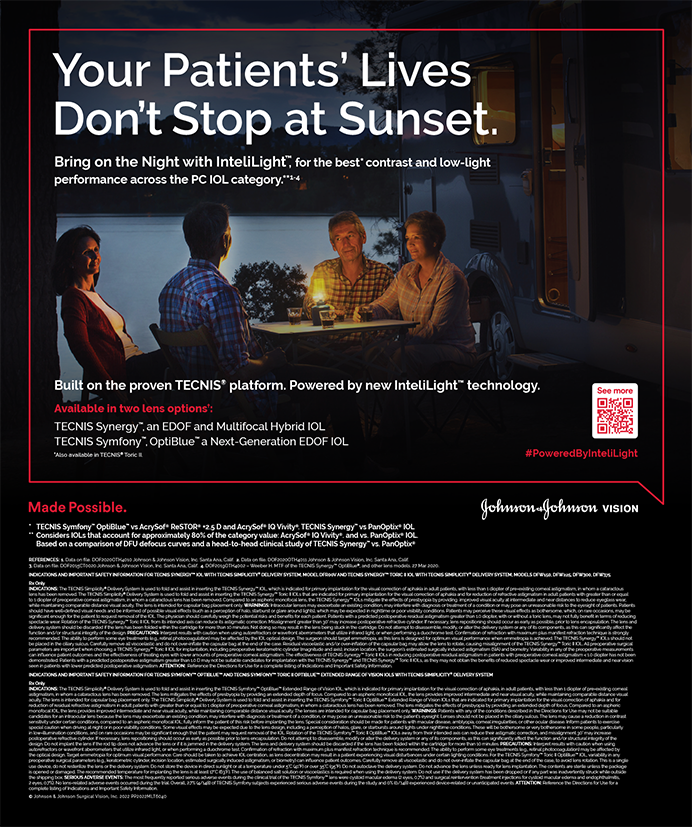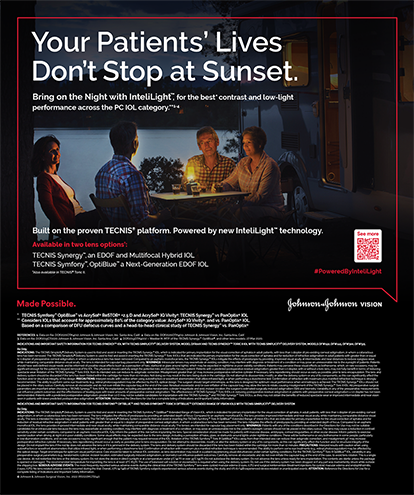Many surgeons continue to give thought to whether they should build their own ambulatory surgery center (ASC). During the decisionmaking process, they should examine the reasons why this potential venture might be a good idea and why it might not.
RIGHT REASONS
Improved Care for Patients:
Perhaps the best reason surgeons should consider establishing their own center is that it will enable their patients to receive better care.
In a center of his or her own, the surgeon can hand pick staff members who are very aware of patients’ fears and concerns, will be able to put them at ease, and will deliver the highest level of considerate care the surgeon wishes. The staff is often specifically dedicated to ophthalmic surgery and is therefore better at delivering the highest quality of care than in an OR in which multiple different surgeries are performed.
In many cases, the ASC’s team will include staff members from the surgeon’s own practice with whom the patients are familiar and in whom they trust. This arrangement makes the ASC setting an advantage in the mind of the patient.
Financial Savings:
In an ASC, the coinsurance requirement is less than in the hospital setting. The current national coinsurance in a hospital’s outpatient department for a Medicare patient is approximately $495.96, and the corresponding national coinsurance in a freestanding ASC is approximately $190.25.1 Because Medicare allows a hospital a higher amount than it does an ASC for the same service, the ASC is a lower-cost provider. In most cases, the ASC is also the better care provider, as noted earlier. In essence, choosing an ASC saves the patient and Medicare money.
Schedule Control:
With his or her own ASC, the surgeon will gain control over the entire operation, which usually increases efficiency and effectiveness. Downtime between cases can be eliminated or greatly reduced, freeing up the surgeon’s time for clinical or personal activities. He or she can also control and change the schedule much more easily than at a hospital. In addition, emergency cases can be worked into the schedule with much less difficulty than in a hospital setting.
Market Positioning and Exit Strategy
Having an ASC where costs can be controlled, where patients’ care is exemplary, and where quality can be documented will provide the surgeon with a position of strength in the marketplace. In my experience, a surgeon with his or her own ASC is better able to compete for patients, especially against other surgeons who do not have an ASC. With the advent of accountable care organizations, a surgeon’s ability to control cost, quality, and patients’ satisfaction will become very important.
The worth of a surgeon’s practice when approaching retirement is greatly enhanced if a well-run ASC is included in the package. Conversely, the absence of an ASC to support the practice will put the surgeon at a disadvantage at the negotiating table. For this reason, the ASC is also an essential element in a surgeon’s exit strategy.
Additional Income Potential:
Although perhaps not a top reason to build their own surgery center, the potential to enhance surgeons’ profits or cash flow is an important element to consider. In terms of owning an ASC, the general wisdom is that, in a smaller rural community, a surgeon should be performing approximately 450 to 550 cases per year versus about 850 to 950 cases annually in a larger urban community.
Should the surgeon not reach these thresholds him- or herself, there are ways in which to accumulate sufficient cases to develop a viable ASC. The most obvious is to partner with another surgeon(s) and develop the center as a group. The partners must be compatible, however, and able to “play in the sandbox” together. In these situations, an agreement must be reached regarding issues such as equipment, personnel, supplies, management, and ownership.
If a partnership cannot be accomplished, it may be feasible to develop the physical ASC as a real estate venture with the operational aspects set up on a time-share basis. Each surgeon would have his or her own individual operating company. They would all secure a state license along with Medicare participation and share the overhead expenses, while at the same time reaping the benefits of their individual production. This concept has been successful in many instances, although it generally requires expert advice. Also, an individual must function as an intermediary to overcome differences of opinion and to secure agreement among the participants with regard to the allocation of shared services, equipment, supplies, and leadership. This arrangement can be applied to an existing ASC that has excess capacity to avoid the creation of additional space.
If a new plant is developed and the surgeons own it and lease it back to the operating companies, it is feasible that, upon their retirement, they may be able to retain their ownership in the real estate. In this case, surgeons could enjoy passive rental income after they have sold both their practice and ASC entities.
WRONG REASONS
Everyone Is Developing His or Her Own ASC
One should never build a surgery center because everyone else has one. Surgeons should examine the correct reasons for creating an ASC and evaluate if it is right for them with regard to their age, health, and personal financial position.
It Will Make Me a Lot of Money
There is no guarantee that building a surgery center will result in additional income. With Medicare reimbursement’s having a major impact on revenue, the rates of payment may decrease. Also, new requirements for procedures to be reimbursed could reduce the rates and volumes of procedures from what are currently available.
DECISION MAKING
As with any financial decision, surgeons must make their choice based on the information available.
They should take into consideration all of the elements discussed herein, consider the level of risk and assets available to support the venture in the event of negative factors, and determine if—at that time—the positive elements outweigh the negative. When moving forward, they should have the assurance that the decision has been made for all of the right reasons.
R. Bruce Wallace III, MD, is the medical director of Wallace Eye Surgery in Alexandria, Louisiana. Dr. Wallace is also a clinical professor of ophthalmology at the Louisiana State University School of Medicine and an assistant clinical professor of ophthalmology at the Tulane School of Medicine, both located in New Orleans. Dr. Wallace may be reached at (318) 448-4488; rbw123@aol.com.
- Centers for Medicare & Medicaid Services.http://www.ascassociation.org/.Accessed November 3,2011.


